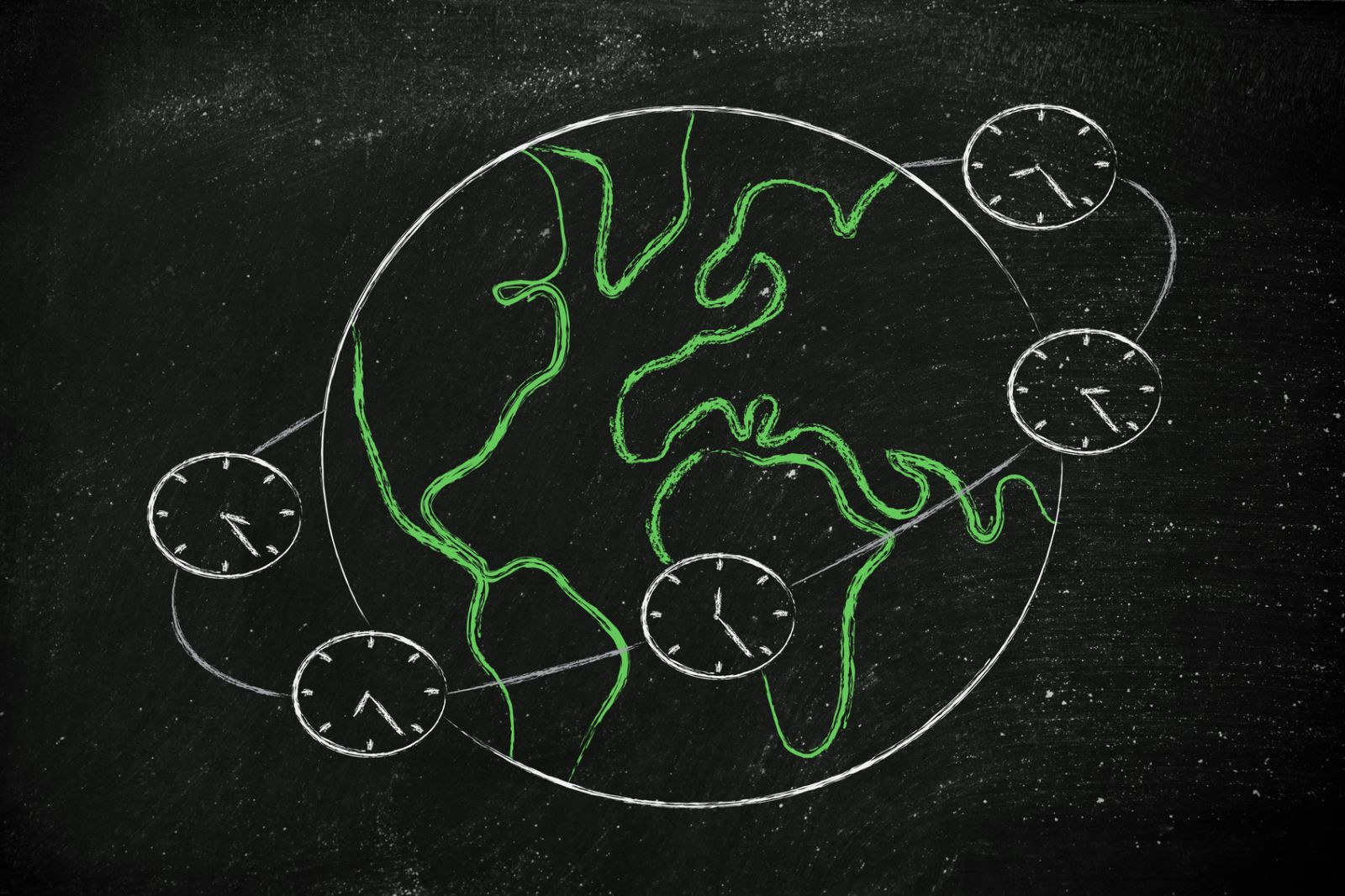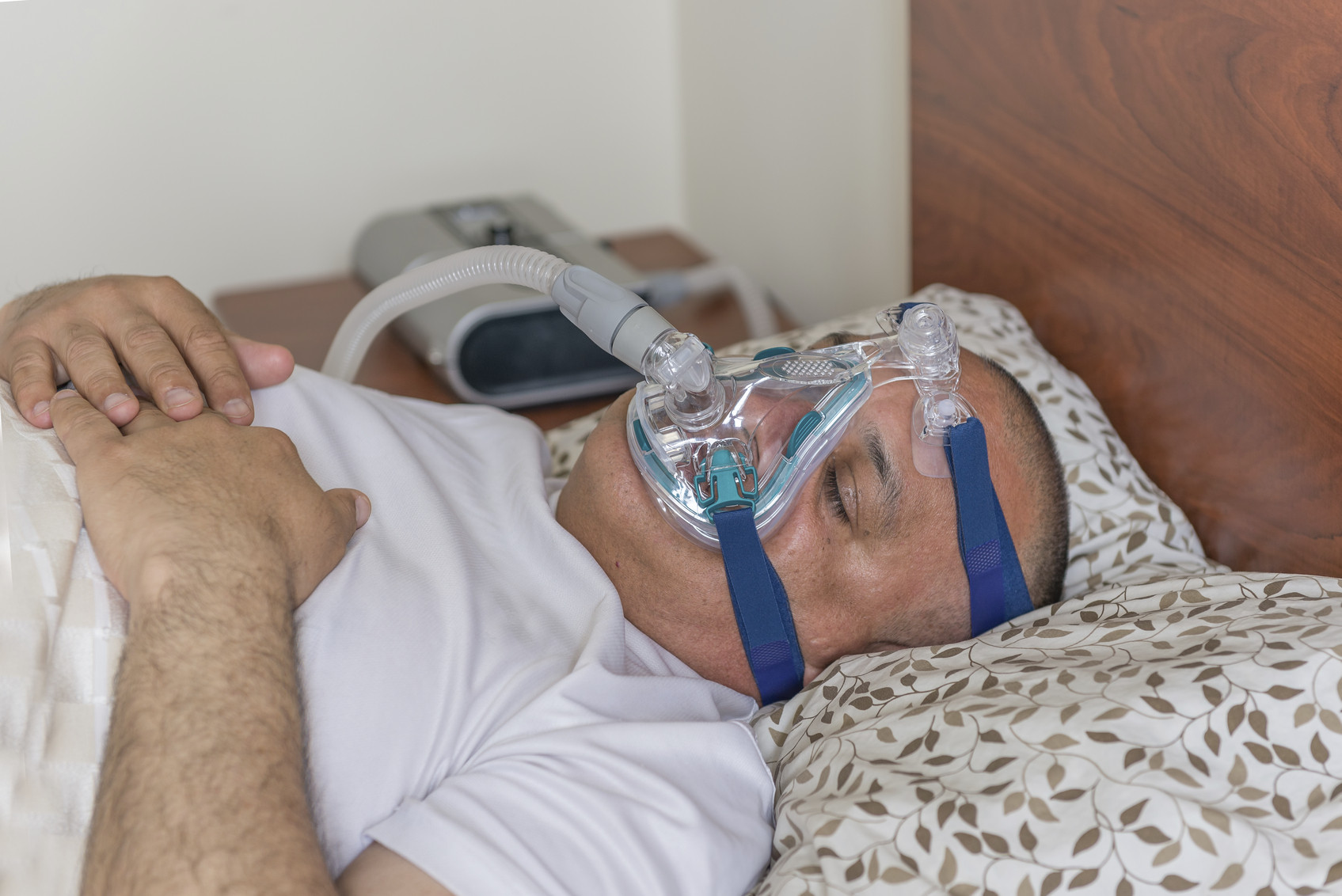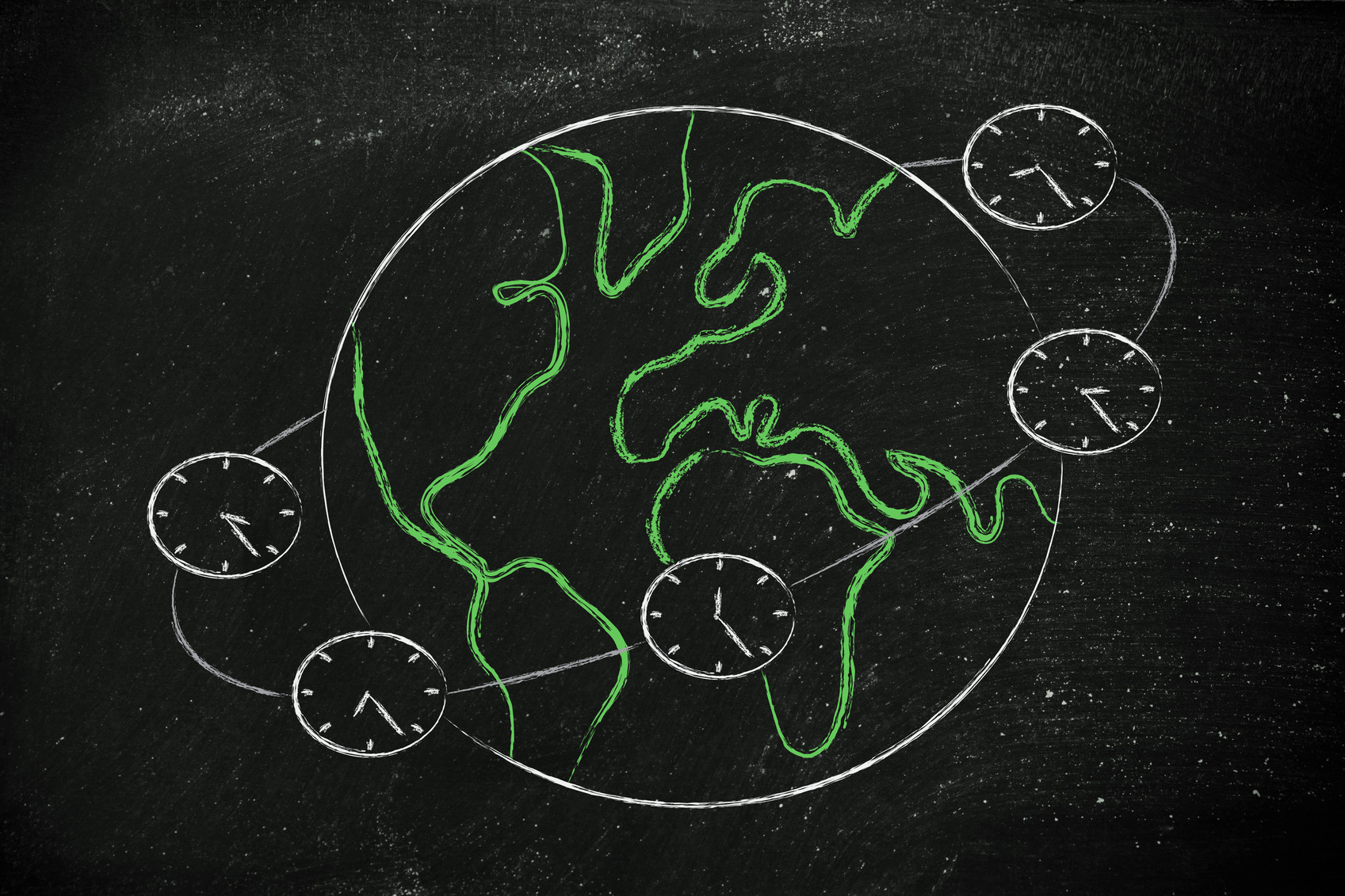
Respiratory health harms often follow flooding: Taking these steps can help

Tips to leverage neuroplasticity to maintain cognitive fitness as you age

Can white noise really help you sleep better?

Celiac disease: Exploring four myths

What is prostatitis and how is it treated?

What is Cushing syndrome?

Exercises to relieve joint pain

Think your child has ADHD? What your pediatrician can do

Foam roller: Could you benefit from this massage tool?

Stepping up activity if winter slowed you down
Sleep Archive
Articles
How to reset your internal clock to combat jet lag
A few simple measures can help minimize the sleep disturbances and malaise that can occur when you cross several time zones.
Image: faithiecannoise/iStock
This month we perform the annual ritual of turning back our clocks as Daylight Savings Time ends. Most of us can handle the one-hour time change easily. However, when we travel long distances across several time zones, few of us can survive the trip without feeling a little out of whack. For holiday travelers flying from coast to coast or overseas, recovering from the symptoms of jet lag—fatigue, insomnia, digestive upsets, and headaches—can consume a day or two of precious vacation time. According to Dr. Charles A. Czeisler, director of the Division of Sleep Medicine at Harvard Medical School, jet lag is due to a misalignment between the external environment and the internal clock in the brain that drives our daily performance, alertness, and the ability to sleep.
What happens during jet lag
Minimizing jet lag
If your destination is only a zone or two away, you may need to make only minor adjustments, like eating meals, going to bed, and awakening a little earlier or later than usual. If you're crossing several time zones, you may want to try the following:
Gradually switch to the new time. For several days before you leave, move mealtimes and bedtime incrementally closer to the schedule of your destination. Even a partial switch may help.
Stay hydrated. During the flight, drink plenty of fluids, but not caffeine or alcohol. Caffeine and alcohol can dehydrate you, which worsens the symptoms of jet lag. They can also disturb your sleep.
Switch your bedtime as rapidly as possible after arrival. Don't turn in until it is bedtime in the new time zone.
Use the sun to help you readjust. If you need to wake up earlier at your destination, get out in the early morning sun. If you want to rise later than you do at home, wait to go out in the sun until late in the afternoon.
A quick fix for jet lag?In 2009, Dr. Clifford Saper and colleagues at Harvard-affiliated Beth Israel Deaconess Medical Center identified a second "master clock" in mice that can regulate circadian rhythms when food is scarce. In essence, the body's circadian rhythms are suspended to conserve energy. It's been theorized that humans may have a similar mechanism and that a brief fast may trigger a quick reset of circadian rhythms. Dr. Saper has suggested a 12-hour to 16-hour fast the day before and during travel. For example, if you were to take a flight from New York City to Honolulu, you would refrain from eating for couple of hours before take-off and during the flight, but would have a good meal as soon as convenient after landing. This technique hasn't been tested in clinical trials, but there are many testimonials in the media to its effective-ness. If you want to try this, it's a good idea to check with your clinician to see if it's advisable for you. And you will still need to drink water—not caffeinated beverages, juice, or alcohol—during your flight. |
Treatment options for obstructive sleep apnea
A range of choices may help you get a better night's sleep.
Image: Courtsey of Carpenter Co.
When the doctor says you have obstructive sleep apnea (OSA), you'll likely hear about the gold standard in treatment: continuous positive airway pressure (CPAP), which uses forced air, pushed through a tube connected to a face mask, to keep your airway unblocked. Yet many people have trouble adjusting to a bulky CPAP mask. "We often see people who say they tried CPAP and didn't like it, and now it's been years since they've had treatment," says Dr. Stuart Quan, the Gerald E. McGinnis professor of sleep medicine at Harvard Medical School.
You may be able to adjust to CPAP by trying relaxation exercises, practicing wearing the mask during the day, and gradually increasing CPAP pressure. But if it doesn't work out, you do have alternatives.
Stay alert! Don’t “drowse” and drive
Driving while very sleepy or drowsy impairs a driver’s reaction time, attention, and judgment.
Heart disease, sleep apnea, and the Darth Vader mask too?
A study questions whether CPAP helps to slow the progression of coronary artery disease in those who already have it, but use of the device has still been shown to have quality of life and other health benefits in those with sleep apnea.
At-home testing for sleep apnea
Home sleep tests to diagnose obstructive sleep apnea (OSA) may reliably detect the disorder even if a sleep specialist is not involved. Marked by loud snoring and breathing lapses during sleep, OSA can increase the risk of cardiovascular disease.
Pace to breathe — New treatments for sleep apnea
Sleep apnea is a common condition that currently affects 26% of all Americans. When a person suffers from sleep apnea, their breathing becomes shallow or even disrupted during their sleep. This results in poor sleep and daytime sleepiness. However, a recent study showed that the use of a pacemaker on the hypoglossal nerve in the neck effectively treated people with moderate to severe sleep apnea. Although there isn’t widespread use of pacemakers to treat this sleeping disorder just yet, it may be an effective solution for people with sleep apnea.
Women and sleep: 5 simple steps to a better night's rest
Sleep shortfalls can lead to a range of health problems, from being more likely to catch a cold or gain weight to increased risk of developing heart disease or diabetes.
For optimum health and function, the average adult should get seven to nine hours of sleep every night. But more than 60% of women regularly fall short of that goal.
Therapy beats drugs for chronic insomnia
The American College of Physicians recommends cognitive behavioral therapy for insomnia (CBT-I) as a first line of defense for chronic insomnia, instead of sleep medications.
New study says that it’s okay to let babies cry at night
Just about every new parent has wrestled with the idea of whether to comfort a baby who cries during the night or whether to let him or her “cry it out.” A recent study adds more evidence to what researchers (and our own parents and grandparents) have long known: It’s okay to let your baby cry it out. It won’t harm them — and you’ll get a much better night’s sleep, too!

Respiratory health harms often follow flooding: Taking these steps can help

Tips to leverage neuroplasticity to maintain cognitive fitness as you age

Can white noise really help you sleep better?

Celiac disease: Exploring four myths

What is prostatitis and how is it treated?

What is Cushing syndrome?

Exercises to relieve joint pain

Think your child has ADHD? What your pediatrician can do

Foam roller: Could you benefit from this massage tool?

Stepping up activity if winter slowed you down
Free Healthbeat Signup
Get the latest in health news delivered to your inbox!
Sign Up











